 There are few dental procedures that strike fear in the hearts of patients like the root canal. The procedure, which clears out infected pulp inside of a tooth and replaces it with synthetic pulp, has earned a reputation of being long and painful. Worse yet, it doesn’t come with a guarantee. Because of the microscopic size of the root canals of the teeth, it can be tricky for dentists to find and clear out (and then refill) all the canals. This means even if the dentist is able to clean out all of the infected pulp, it could still come back. With risks like that, it's no wonder most people aren’t too keen on getting the procedure done in the first place.
There are few dental procedures that strike fear in the hearts of patients like the root canal. The procedure, which clears out infected pulp inside of a tooth and replaces it with synthetic pulp, has earned a reputation of being long and painful. Worse yet, it doesn’t come with a guarantee. Because of the microscopic size of the root canals of the teeth, it can be tricky for dentists to find and clear out (and then refill) all the canals. This means even if the dentist is able to clean out all of the infected pulp, it could still come back. With risks like that, it's no wonder most people aren’t too keen on getting the procedure done in the first place.
 Undergoing treatment for cancer can be a scary and stressful ordeal, especially if surgery is required. With so many things to remember and arrangements to be made for before and after care, it's easy to forget important steps along the way. But researchers are now saying that one surprising step in pre-op care could literally be the difference between life and death, post operation.
Undergoing treatment for cancer can be a scary and stressful ordeal, especially if surgery is required. With so many things to remember and arrangements to be made for before and after care, it's easy to forget important steps along the way. But researchers are now saying that one surprising step in pre-op care could literally be the difference between life and death, post operation.
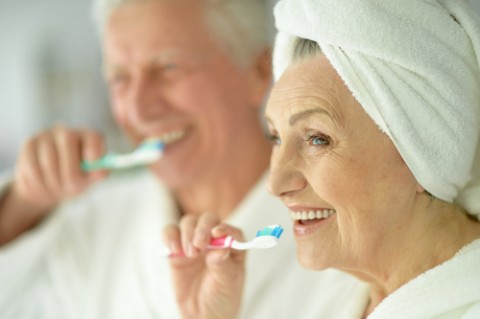 With 44 million senior citizens on some form of Medicare in the United States (and that number set to nearly double in the next 12 years), ensuring that Medicare provides adequate health care coverage for all beneficiaries is an absolute must. But, when it comes to dental care, some feel that Medicare is completely lacking. That’s because currently Medicare covers just 1 percent of dental care for seniors, requiring them to purchase additional coverage for anything beyond the most basic of care. But now, a group called Demand Medicare Dental is trying to change that, lobbying senators across America to add more vital dental coverage to Medicare - without sticking seniors with the bill.
With 44 million senior citizens on some form of Medicare in the United States (and that number set to nearly double in the next 12 years), ensuring that Medicare provides adequate health care coverage for all beneficiaries is an absolute must. But, when it comes to dental care, some feel that Medicare is completely lacking. That’s because currently Medicare covers just 1 percent of dental care for seniors, requiring them to purchase additional coverage for anything beyond the most basic of care. But now, a group called Demand Medicare Dental is trying to change that, lobbying senators across America to add more vital dental coverage to Medicare - without sticking seniors with the bill.
 It’s not always easy being a woman - especially when it comes to your temporomandibular joint. That’s because, according to research, women ages 20 to 35 experience the most severe temporomandibular joint disorder symptoms of any age or gender group.
It’s not always easy being a woman - especially when it comes to your temporomandibular joint. That’s because, according to research, women ages 20 to 35 experience the most severe temporomandibular joint disorder symptoms of any age or gender group.
 Earlier this year, the New York Times ran an op-ed about New York City's proposed sugar tax. The article's author spoke with former Mayor Bloomberg about his new Task Force on Fiscal Policy for Health, which pairs him with former Secretary of the U.S. Treasury Larry Summers to educate leaders around the globe on the importance of adding a sugar tax to help fight obesity. But is a sugar tax really a good way to fight obesity - or is it just more government overreach into our private lives?
Earlier this year, the New York Times ran an op-ed about New York City's proposed sugar tax. The article's author spoke with former Mayor Bloomberg about his new Task Force on Fiscal Policy for Health, which pairs him with former Secretary of the U.S. Treasury Larry Summers to educate leaders around the globe on the importance of adding a sugar tax to help fight obesity. But is a sugar tax really a good way to fight obesity - or is it just more government overreach into our private lives?
 On February 27, 2018, the U.S. House of Representatives passed the bipartisan Action for Dental Health Act (H.R.2422). Co-authored by the chair of the Congressional Black Caucus Health Braintrust, Congresswoman Robin Kelly (D-IL), and Mike Simpson (R-ID), a dentist, the bill received overwhelming support from both parties, and passed with 387 yes votes.
On February 27, 2018, the U.S. House of Representatives passed the bipartisan Action for Dental Health Act (H.R.2422). Co-authored by the chair of the Congressional Black Caucus Health Braintrust, Congresswoman Robin Kelly (D-IL), and Mike Simpson (R-ID), a dentist, the bill received overwhelming support from both parties, and passed with 387 yes votes.
The bill’s next stop is the Senate, where it is currently being sponsored by Sen. Cory Booker (D-NJ); Mazie K. Hirono (D-HI); Bill Cassidy, M.D. (R-LA); and Tim Scott (R-SC). The bill aims to reauthorize initiatives that increase access to oral health care for people in underserved communities around the United States.
 Odontophobia. It’s kind of a funny word, but it’s no laughing matter. Odontophobia is the fear of going to the dentist - a fear that an estimated 10 percent of the population have so severely that it keeps them from attending routine dental exams. The danger in this, of course, is that if you don’t go to the dentist, you could be missing some very harmful oral health problems, like cavities, periodontitis or abscesses, all of which, if left untreated, can easily worsen and wreak major havoc on your mouth.
Odontophobia. It’s kind of a funny word, but it’s no laughing matter. Odontophobia is the fear of going to the dentist - a fear that an estimated 10 percent of the population have so severely that it keeps them from attending routine dental exams. The danger in this, of course, is that if you don’t go to the dentist, you could be missing some very harmful oral health problems, like cavities, periodontitis or abscesses, all of which, if left untreated, can easily worsen and wreak major havoc on your mouth.
 Moms today have a lot on their plate. From juggling the family agenda to working and raising children, there’s a lot to be done, and sometimes it seems like not a whole lot of time to do it. Perhaps that’s why a new study in The Journal of Epidemiology & Community Health found that the more children a woman has, the more teeth she may end up losing as an indirect result.
Moms today have a lot on their plate. From juggling the family agenda to working and raising children, there’s a lot to be done, and sometimes it seems like not a whole lot of time to do it. Perhaps that’s why a new study in The Journal of Epidemiology & Community Health found that the more children a woman has, the more teeth she may end up losing as an indirect result.
"The working theory is that between the toll pregnancy takes on the body and the amount of time mothers spend caring for everyone but themselves, they are more likely to let their oral health slide, and ultimately end up losing teeth," says Bellmore, New York, dentist Dr. Gary Lederman.
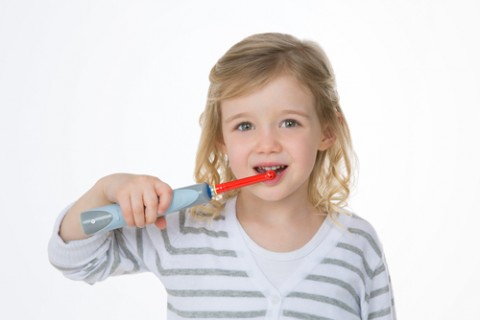 It seems like every product we use on a daily basis these days has a "smart" version either on the market or in the works. From app-enabled lawn sprinkler systems to doors you can lock from your phone, we are becoming an ever-increasing digital society. Naturally, dentistry is no exception.
It seems like every product we use on a daily basis these days has a "smart" version either on the market or in the works. From app-enabled lawn sprinkler systems to doors you can lock from your phone, we are becoming an ever-increasing digital society. Naturally, dentistry is no exception.
You may have already heard of the new smart toothbrushes hitting the consumer marketplace every few months. Recently, the Apple Store launched its exclusive Colgate E1 toothbrush, which works hand in hand with its very own Apple-only app. The Colgate E1 claims to provide "mouth mapping technology," "real-time feedback" and even "brush coaching," among other things. With a $99 price tag, it’s definitely not cheap, but it's also pretty on-par with the average better-quality electric toothbrush. The question is: Is it worth the investment? A quick glance at the customer reviews on the Apple Store website aren’t very clear.
So far, out of 18 reviews, the brush gets a score of 3.5 out of 5 from consumers. Review headlines exclaim "Needs work" and "Nice Idea Poorly Executed." Overall it seems that, so far, consumers aren’t quite in love with the Colgate E1.
Another popular brush that has been around for over a year is the Grush brush for children. First introduced to the world via the ABC invention reality show "Shark Tank," Grush was designed with the goal of helping children clean all their teeth for an appropriate amount of time and with the appropriate amount of pressure. The brush connects to a smartphone app that plays a video game while your child brushes. The better he or she brushes, the higher the score. At the end of the game, parents can check the brushing data and see where their child missed the mark on brushing their teeth.
It also shows children as they brush where they need to apply a bit more pressure and what quadrant of the mouth they should be cleaning at any given time. The Grush brush isn’t quite as costly as the Colgate E1, but at $33 on Amazon, it’s still a lot of money for a kids’ toothbrush. Still, the Grush gets relatively good reviews from parents, earning 3.9 out of 5 stars. The chief complaint among Amazon reviewers is that the movements aren’t accurate. Bottom line, for $33, if you want to give the Grush a try, it can’t hurt. Kids love video games, and most kids love any excuse they can get to play on mom and dad’s smartphone for a few minutes.
As great as that sounds, unfortunately the Grush also has a high potential to backfire. Some parents have reported that their kids are more focused on the game than they are on brushing their teeth, and they’re not really paying attention to what they’re doing with the toothbrush while the game is running. The game is great if it teaches your child how to brush, but if he or she is focused solely on an app and not even looking at their teeth in the mirror while they brush, they’re not really going to learn as much about proper brush technique as they could if they were watching their own mouth.
Ultimately, it’s up to you if you want to invest in a smart toothbrush. Yes, they can be pretty cool, and if you’re a gadget person and have to have the latest high-tech innovation the second it comes out, then these devices will probably be right up your alley. But for the rest of us, it’s probably better to hold off until the smart-brushing technology improves a bit, or just skip the smart brush trend altogether. If we can’t disconnect from our phone for the four minutes a day it takes to brush our teeth, when can we?
There are plenty of affordable electric toothbrushes available today that can get your teeth clean with the correct amount of pressure and for the correct amount of time, all without requiring you to use an app or slay a virtual dragon.
As always, if you have any questions or concerns about your toothbrush or your brushing technique, please feel free to give Dr. Lederman's office a call at 516-882-1764.
 You’d be hard pressed to find a kid who doesn't love candy. But for many parents, it’s a love they’re hesitant to indulge. That’s because with so much sugar already in our diets, the last thing most kids need is more of it. Sugar in moderation is OK, but when sugar is overdone, it can cause a whole list of chronic problems including obesity, diabetes and cavities. Some studies have even linked it to hormone imbalances, premature aging and cancer.
You’d be hard pressed to find a kid who doesn't love candy. But for many parents, it’s a love they’re hesitant to indulge. That’s because with so much sugar already in our diets, the last thing most kids need is more of it. Sugar in moderation is OK, but when sugar is overdone, it can cause a whole list of chronic problems including obesity, diabetes and cavities. Some studies have even linked it to hormone imbalances, premature aging and cancer.
 A recent study by the American Academy of Geriatrics has found a link between the presence of gum disease, tooth loss and frailty in senior citizens. Conducted in the United Kingdom, the study of nearly 8,000 people found that more than 60 percent of citizens over the age of 65 had some form of periodontal disease, and many more were missing more than one tooth. Another common side effect experienced by respondents was dry mouth.
A recent study by the American Academy of Geriatrics has found a link between the presence of gum disease, tooth loss and frailty in senior citizens. Conducted in the United Kingdom, the study of nearly 8,000 people found that more than 60 percent of citizens over the age of 65 had some form of periodontal disease, and many more were missing more than one tooth. Another common side effect experienced by respondents was dry mouth.
 When a 57-year-old woman from Hunan Province, China, recently sought help for her chronic sinus congestion and nosebleeds, she received quite a shock from her doctor. While there are a variety of medical problems that can cause chronic congestion, the woman’s scan revealed none of those "usual suspects" were to blame. Instead of a deviated septum or sinus infection, her scans showed a small round object blocking the nasal passage. But what that object ended up being was the biggest surprise: a tooth!
When a 57-year-old woman from Hunan Province, China, recently sought help for her chronic sinus congestion and nosebleeds, she received quite a shock from her doctor. While there are a variety of medical problems that can cause chronic congestion, the woman’s scan revealed none of those "usual suspects" were to blame. Instead of a deviated septum or sinus infection, her scans showed a small round object blocking the nasal passage. But what that object ended up being was the biggest surprise: a tooth!
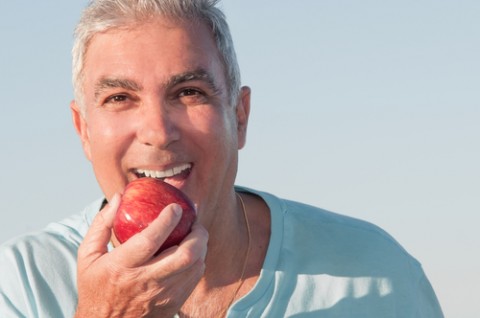 Whether you’ve just gotten your first set of dentures or you’re a seasoned pro at wearing them, don’t fall into the trap of thinking that just because you have dentures you no longer need to care for your oral health. In fact, improperly cleaned or poorly fitting dentures can be just as dangerous to the mouth as failing to care for natural teeth.
Whether you’ve just gotten your first set of dentures or you’re a seasoned pro at wearing them, don’t fall into the trap of thinking that just because you have dentures you no longer need to care for your oral health. In fact, improperly cleaned or poorly fitting dentures can be just as dangerous to the mouth as failing to care for natural teeth.
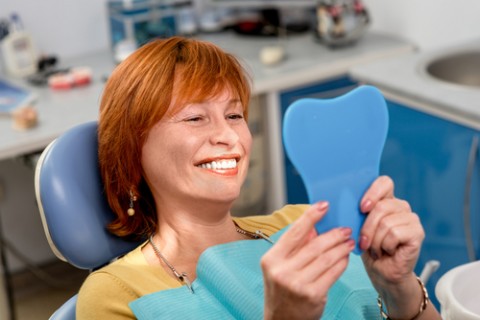 The holiday season is fast approaching, but before you get to the business of relaxing and enjoying it, don’t forget about the other important thing that happens at this time every year: the expiration of your flexible spending account (FSA). An FSA account is a payroll tax-free health care spending account you can use for one calendar year to pay for things like doctor copays, prescription medications, medical procedures, eyewear and some dental services and products. These accounts are great for families and people with lots of medical expenses, but the downside is if you don’t use it, you lose it. This may not seem so awful until you consider that the money that vanished with the old year was money you earned - so you’ve essentially thrown away your hard-earned money, simply because you didn’t spend it.
The holiday season is fast approaching, but before you get to the business of relaxing and enjoying it, don’t forget about the other important thing that happens at this time every year: the expiration of your flexible spending account (FSA). An FSA account is a payroll tax-free health care spending account you can use for one calendar year to pay for things like doctor copays, prescription medications, medical procedures, eyewear and some dental services and products. These accounts are great for families and people with lots of medical expenses, but the downside is if you don’t use it, you lose it. This may not seem so awful until you consider that the money that vanished with the old year was money you earned - so you’ve essentially thrown away your hard-earned money, simply because you didn’t spend it.
 According to the University of Michigan’s "National Poll on Healthy Aging" released in September 2017, an increasing number of older Americans are worried about caring for – and paying for – their teeth as they age. The poll, which was conducted by the Institute for Healthcare Policy and Innovation at the University of Michigan, worked in partnership with the AARP and Michigan Medicine.
According to the University of Michigan’s "National Poll on Healthy Aging" released in September 2017, an increasing number of older Americans are worried about caring for – and paying for – their teeth as they age. The poll, which was conducted by the Institute for Healthcare Policy and Innovation at the University of Michigan, worked in partnership with the AARP and Michigan Medicine.
 The benefits of exercise to the body are seemingly endless. From stronger muscles to lower body weight and decreased risk of diseases like diabetes, heart disease, cancer and stroke, the pluses of staying fit go way past just looking good. But did you know that one fitness plan in particular can help ward off the gum disease gingivitis? It’s called HIIT, and it could take a swing at this common early-stage gum disease.
The benefits of exercise to the body are seemingly endless. From stronger muscles to lower body weight and decreased risk of diseases like diabetes, heart disease, cancer and stroke, the pluses of staying fit go way past just looking good. But did you know that one fitness plan in particular can help ward off the gum disease gingivitis? It’s called HIIT, and it could take a swing at this common early-stage gum disease.
 Yo-yos, matchbox cars, dolls and tin robots - they’re all classic toys, but one of them could soon be changing the way we practice dentistry. Today’s robots do way more than the robot toys of yesteryear - today we use robots for everything from cleaning floors to diffusing bombs - but a new wave of robots could soon help care for your oral health.
Yo-yos, matchbox cars, dolls and tin robots - they’re all classic toys, but one of them could soon be changing the way we practice dentistry. Today’s robots do way more than the robot toys of yesteryear - today we use robots for everything from cleaning floors to diffusing bombs - but a new wave of robots could soon help care for your oral health.
 Made only in certain regions of Italy, prosecco is having its moment in the sun with wine enthusiasts lately. Made from at least 85 percent glera grapes, this versatile sparkling wine can be used for everything from pre-dinner aperitivo to celebratory dessert toasting and everything in between. Touted as the less expensive alternative to champagne, this delicious bubbly beverage may be causing an unexpected side effect to your teeth: enamel erosion.
Made only in certain regions of Italy, prosecco is having its moment in the sun with wine enthusiasts lately. Made from at least 85 percent glera grapes, this versatile sparkling wine can be used for everything from pre-dinner aperitivo to celebratory dessert toasting and everything in between. Touted as the less expensive alternative to champagne, this delicious bubbly beverage may be causing an unexpected side effect to your teeth: enamel erosion.
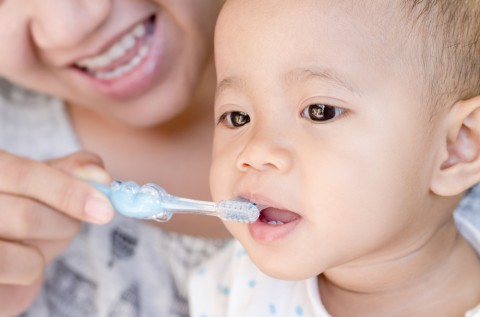 In many cultures, a baby’s first tooth eruption is a celebrated milestone in their life. Here in the United States, there is usually even a line to mark the occasion in most baby books. But what happens after that first tooth appears can be a little confusing. For years, toothpaste manufacturers have marketed fluoride-free cleansing pastes and gels to help keep those early baby-teeth clean without running the risk of babies ingesting too much fluoride during brushing. But while fluoride-free toothpastes certainly help keep babies and children’s teeth clean, without added fluoride, children using these pastes are missing out on the added protection fluoridated toothpaste provides.
In many cultures, a baby’s first tooth eruption is a celebrated milestone in their life. Here in the United States, there is usually even a line to mark the occasion in most baby books. But what happens after that first tooth appears can be a little confusing. For years, toothpaste manufacturers have marketed fluoride-free cleansing pastes and gels to help keep those early baby-teeth clean without running the risk of babies ingesting too much fluoride during brushing. But while fluoride-free toothpastes certainly help keep babies and children’s teeth clean, without added fluoride, children using these pastes are missing out on the added protection fluoridated toothpaste provides.
 You may have heard the term "biomimetic" before, but what you may not know is how it relates to dentistry- or why we are so passionate about using a biomimetic dentistry approach with our patients. The word biomimetic literally means ‘imitating (mimesis) life (bios).’ In dentistry, biomimetic dentistry means we take a minimally invasive approach to dental care- an approach which strives to keep as much of the natural tooth intact as possible. We do this by using specialized techniques, tools, and advanced materials to repair damaged teeth- instead of just cutting away the damaged area and hoping whatever we stick to the tooth stays in place and looks realistic. The ultimate goal of our practice, and of biomimetic dentistry as a whole, is to "help our patients keep their teeth for a lifetime... In a condition that’s beautiful and that’s functional."
You may have heard the term "biomimetic" before, but what you may not know is how it relates to dentistry- or why we are so passionate about using a biomimetic dentistry approach with our patients. The word biomimetic literally means ‘imitating (mimesis) life (bios).’ In dentistry, biomimetic dentistry means we take a minimally invasive approach to dental care- an approach which strives to keep as much of the natural tooth intact as possible. We do this by using specialized techniques, tools, and advanced materials to repair damaged teeth- instead of just cutting away the damaged area and hoping whatever we stick to the tooth stays in place and looks realistic. The ultimate goal of our practice, and of biomimetic dentistry as a whole, is to "help our patients keep their teeth for a lifetime... In a condition that’s beautiful and that’s functional."
What makes biomimetic dentistry different is kind of like that old metaphor about optimism versus pessimism, where you are asked whether you see the glass half full or half empty. Traditional methods of dentistry historically have taken a more pessimistic approach, giving little thought to the remaining structure of the tooth, and instead focusing on the repaired section. When you pay more attention to the restoration, it’s a lot like seeing the glass as half empty, because you are not focused on the healthy portion of the tooth. With biomimetic dentistry, we aim to repair the damage to the tooth, not to simply replace the damaged areas, as this essentially creates more damage to the tooth in the process. This is like seeing the glass half-full because we understand the importance of preserving the natural tooth.
In addition to your teeth looking better with biomimetic dentistry, biomimetic dentistry offers two things that many traditional procedures cannot: comfort and predictability. Because biomimetic procedures are minimally invasive, they are naturally less painful than traditional dentistry procedures. Not only that, but most patients experience less tooth sensitivity after the procedure, as well. As for predictability, with biomimetic dentistry, there are no surprises. You already know what your tooth looks like, so restoring that tooth creates no change in the look or feel of your natural tooth. Best of all, because the tooth is repaired, you can feel confident that the health of your teeth is protected- and that you will keep your natural teeth for the rest of your life.
So, given what we know about biomimetic dentistry, why don’t more practices apply biomimetic dentistry principles to their practice? The biomimetic approach is not as easy as traditional dentistry. Biomimetic dentistry requires a lot of skill, patience, and training. It requires the dentist and their staff to look at dentistry under a completely different lens than they were probably initially trained to do. Hopefully, in the future, this will change, and biomimetic dentistry will someday become the standard of care in all practices. But until then, finding a practice which follows the principles of biomimetic care and maintains their focus on the health of the existing tooth instead of the damaged portions of the tooth can be an integral part of enjoying the strength and beauty of your natural teeth for the rest of your life.
If you’d like to learn more about how Dr. Lederman and the biomimetic approach to dentistry can benefit the holistic health of your teeth, give us a call at 516-882-1764 for an appointment.




